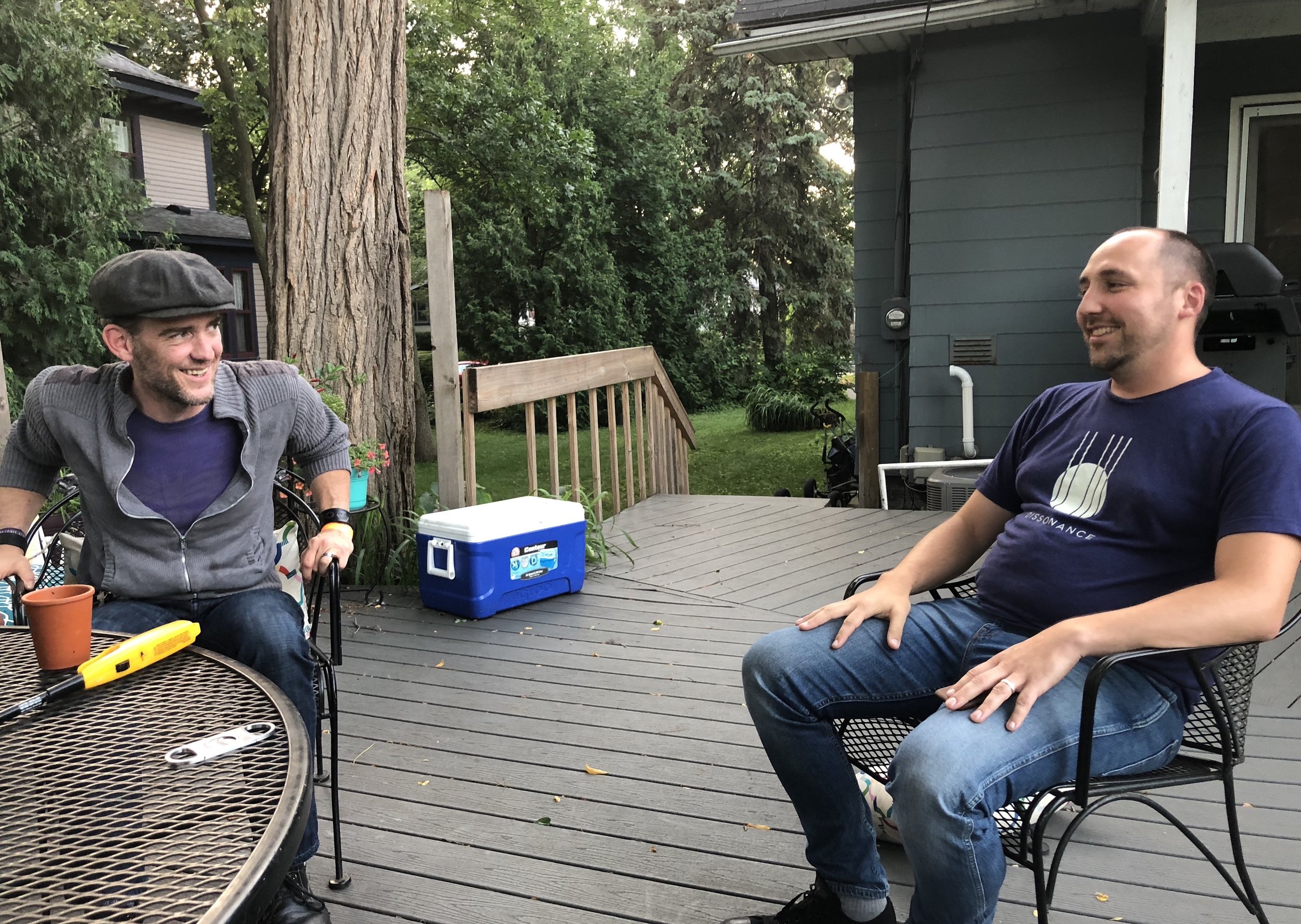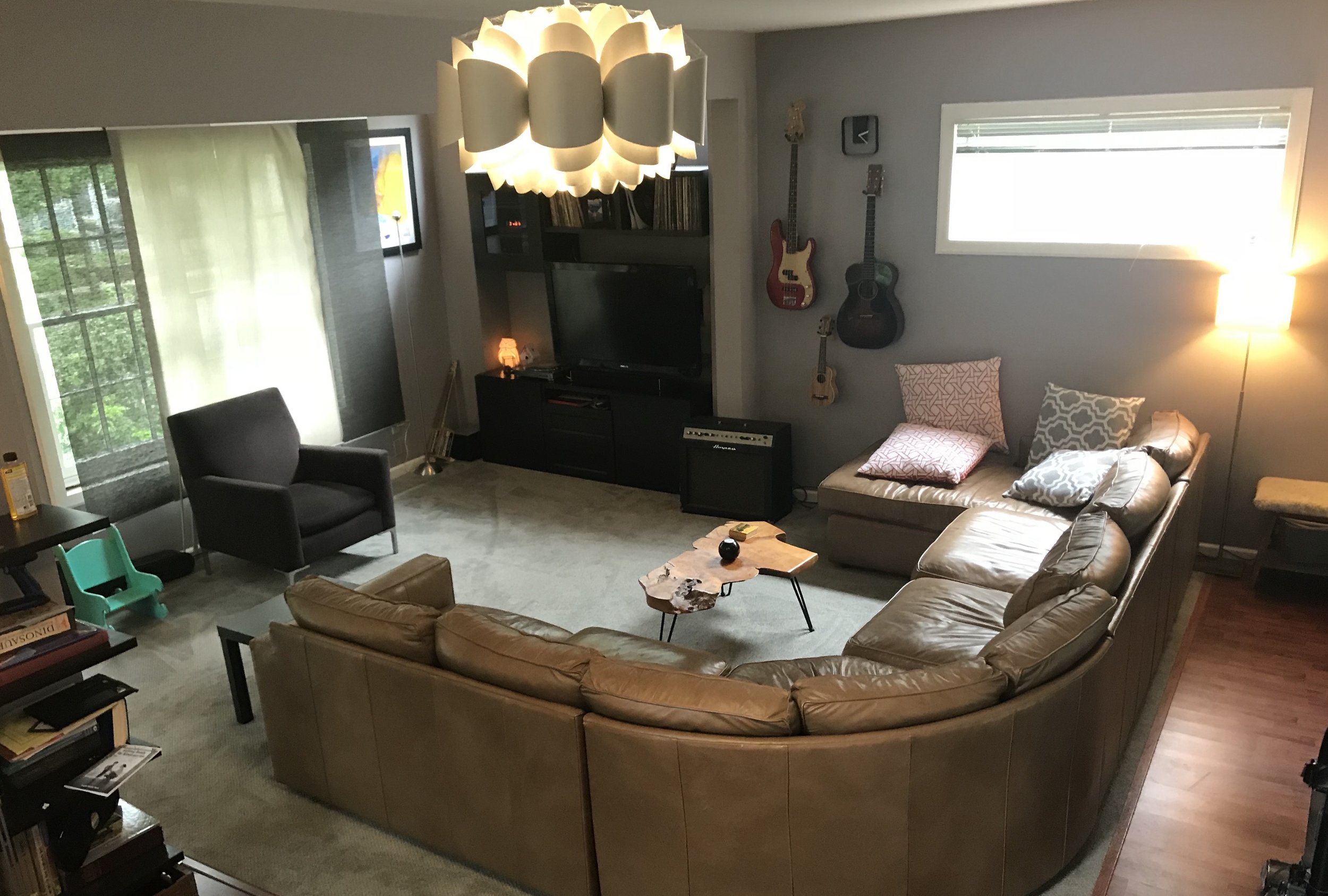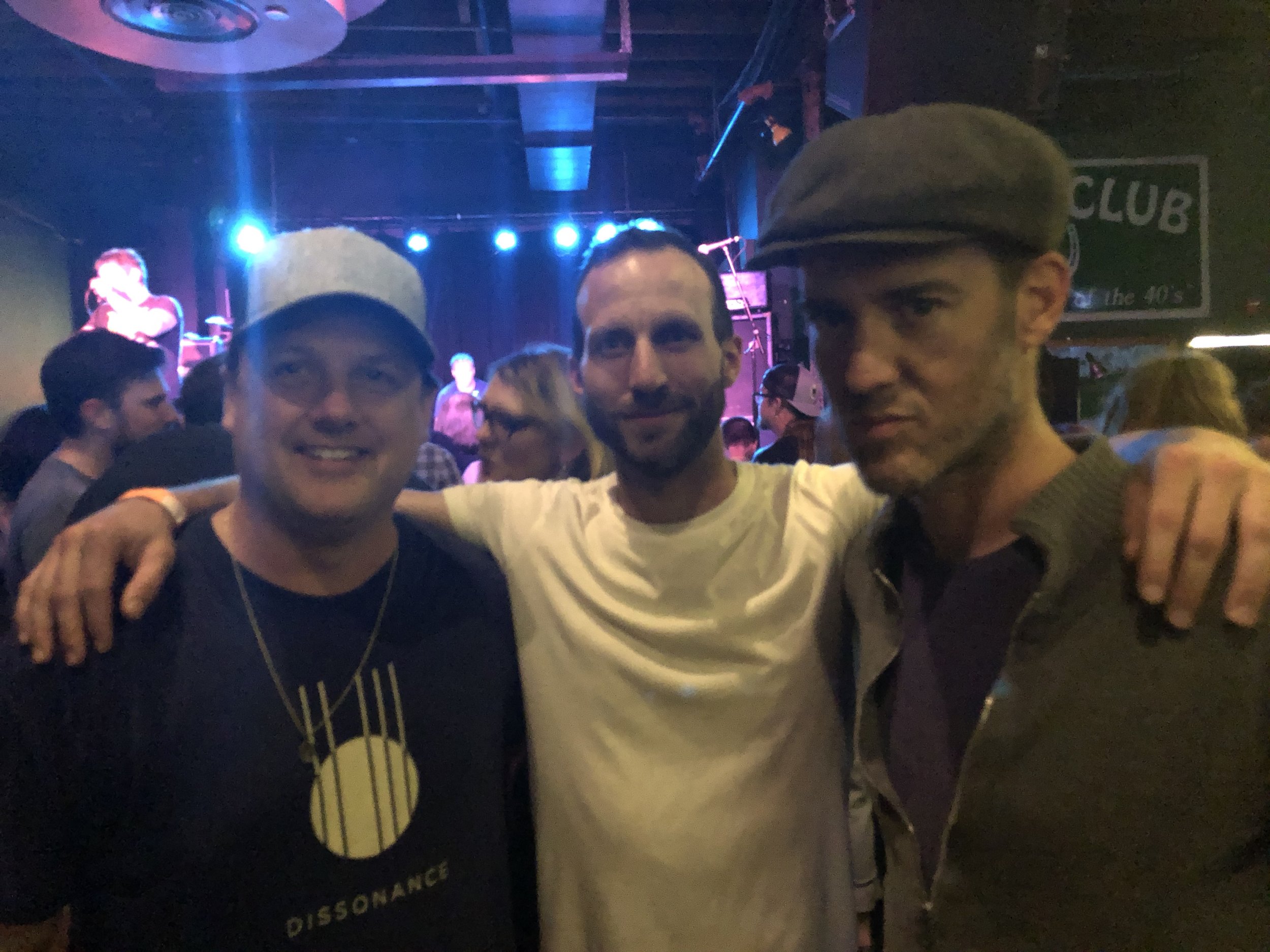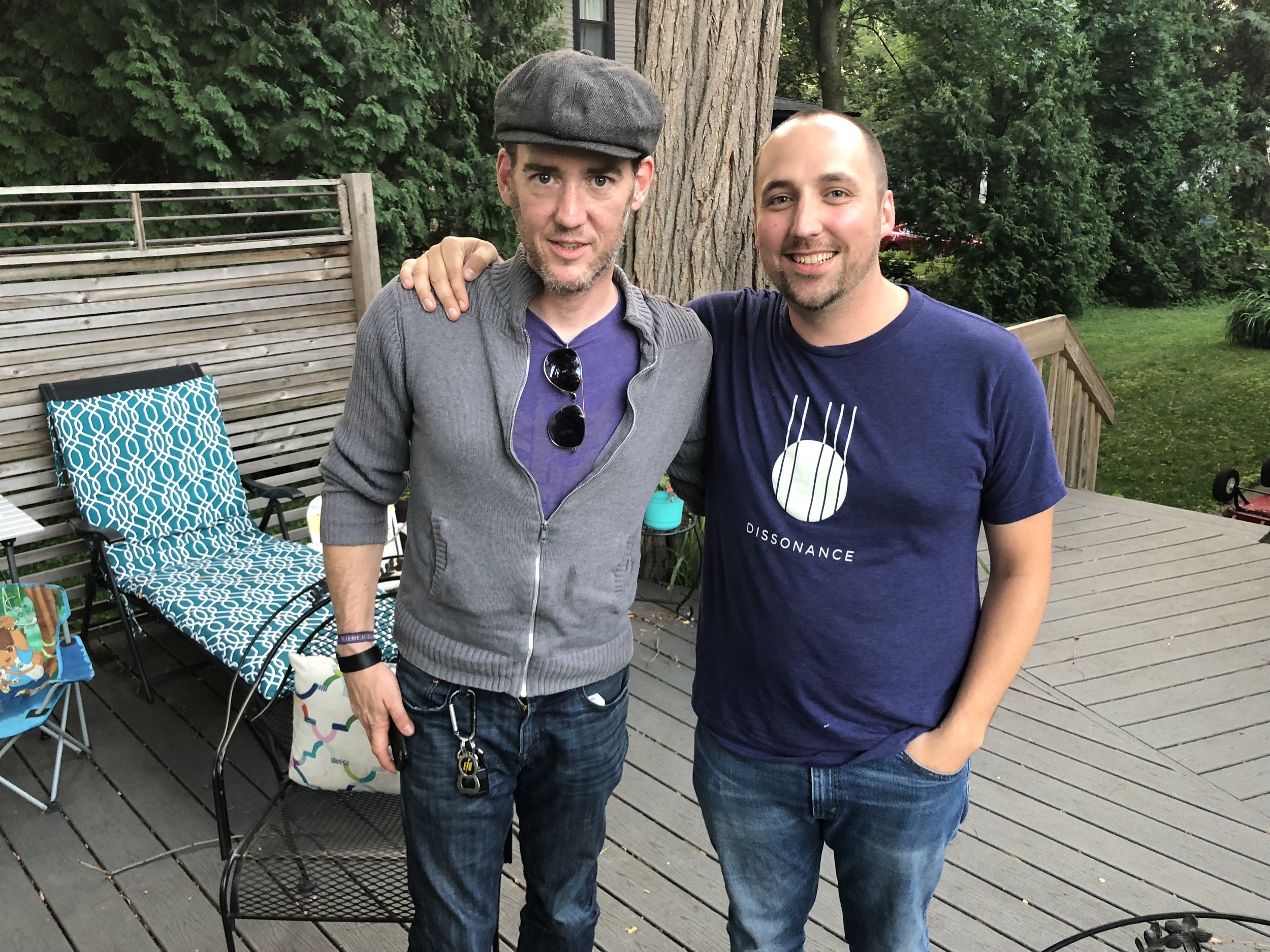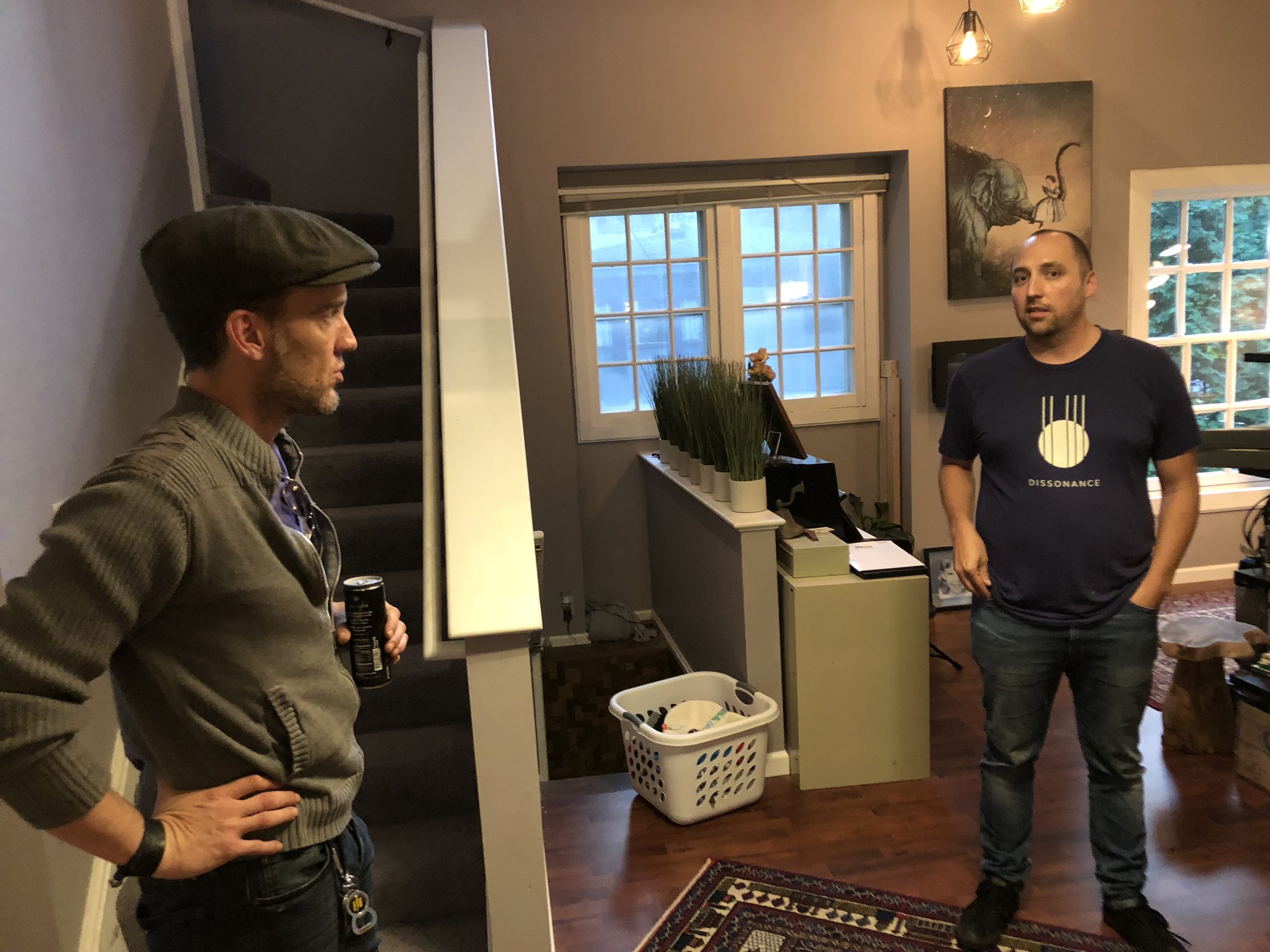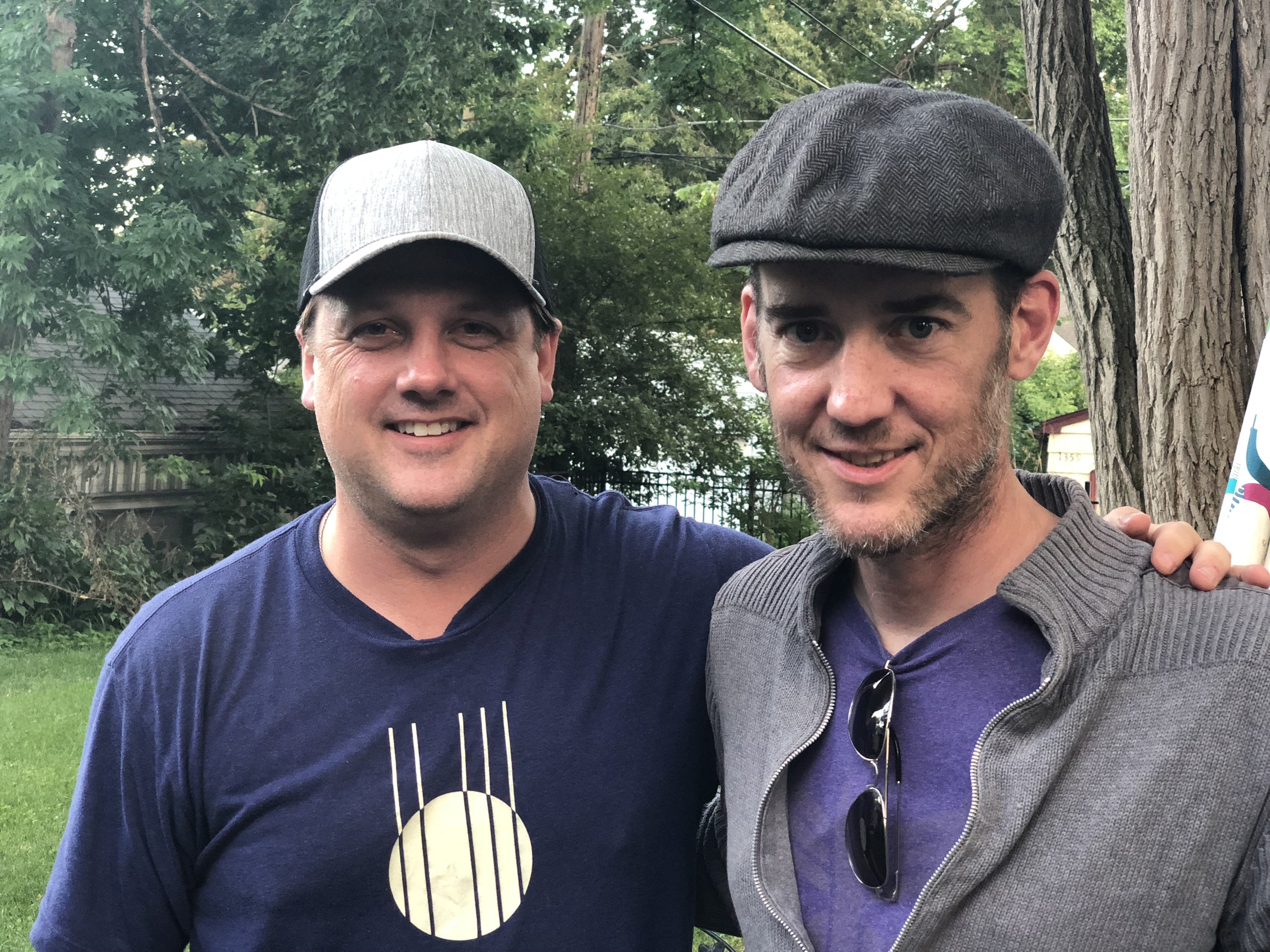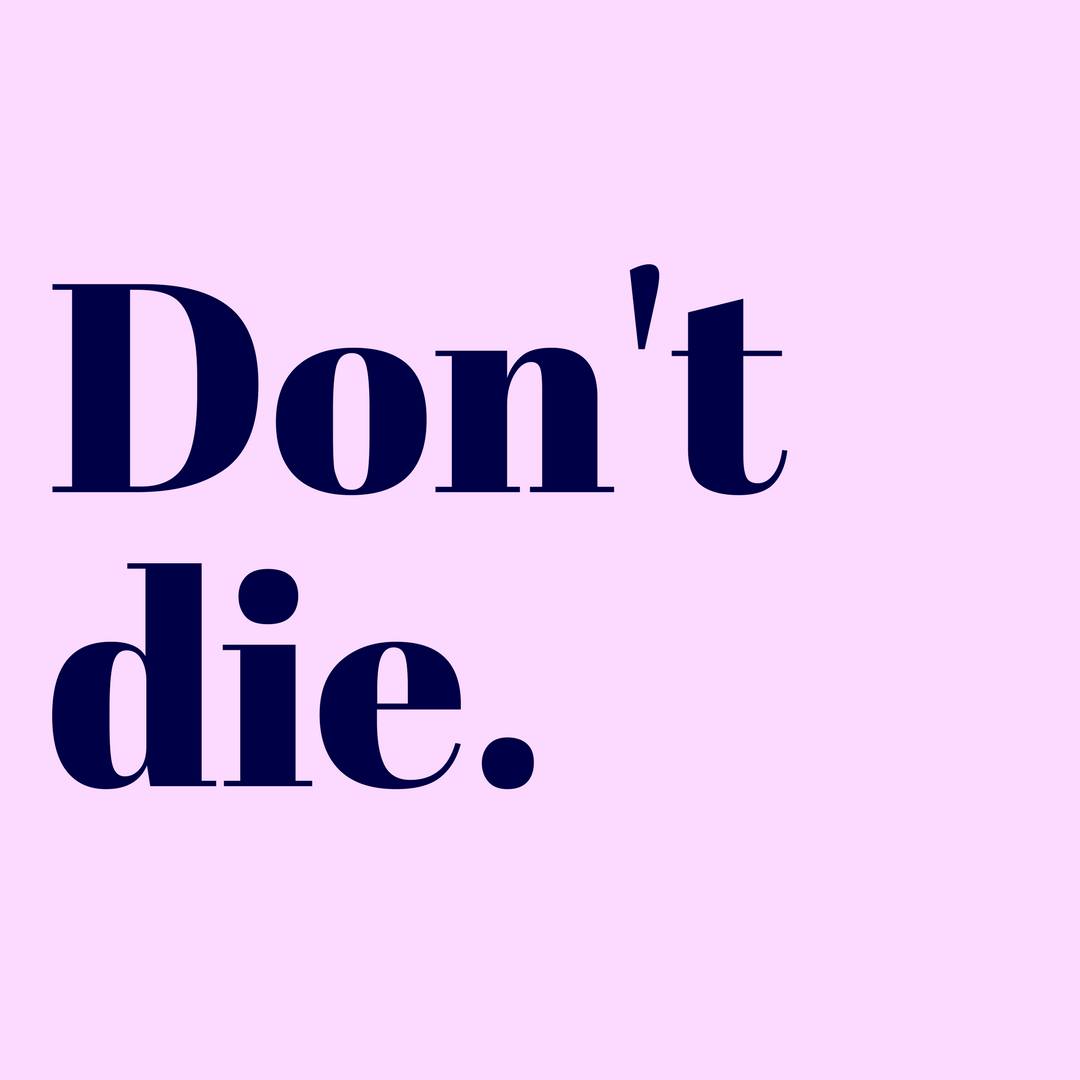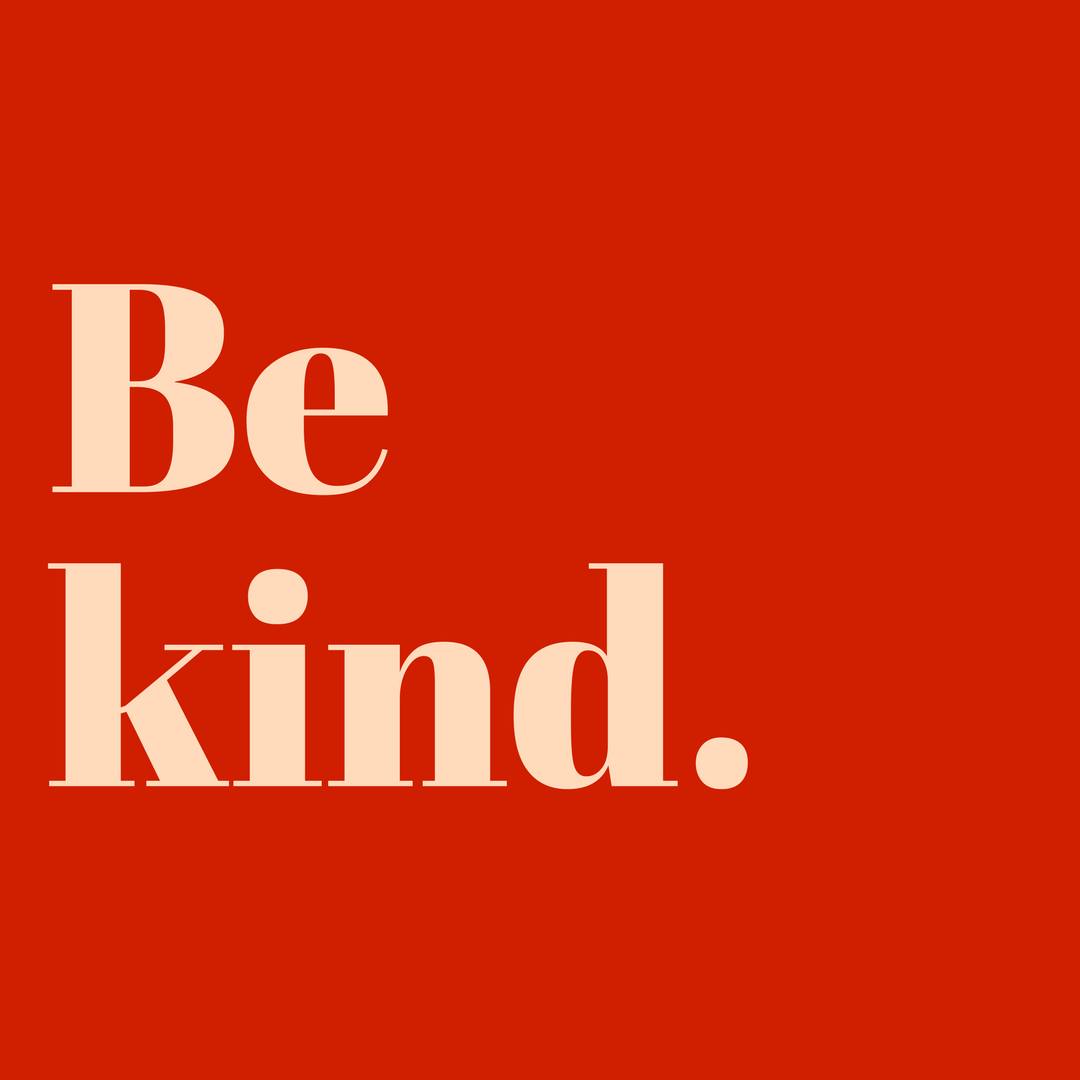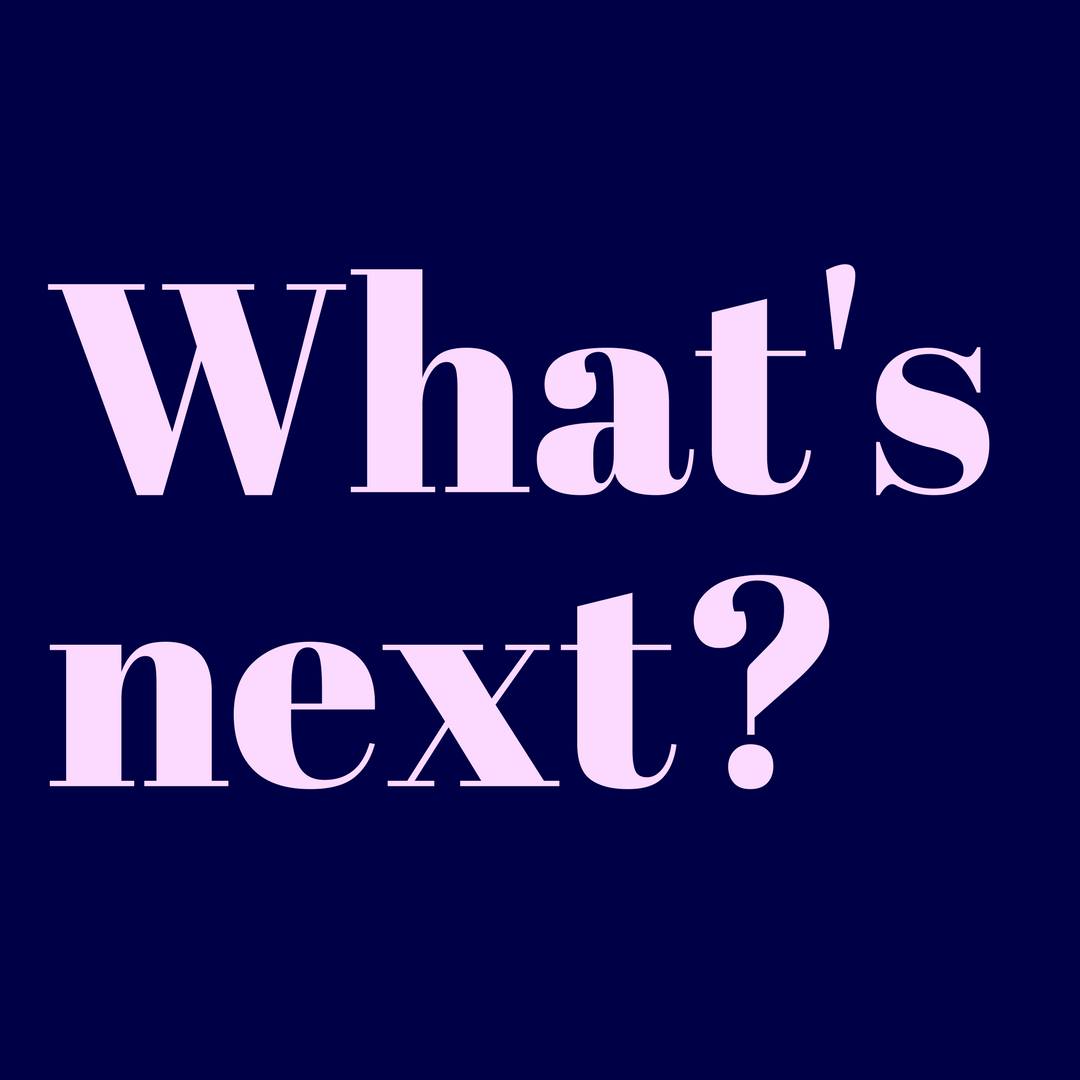By Kara W.
When I was a kid, I used to close my eyes and internalize my own death. Inside, I would dissipate, folding into sheet after sheet of darkness. Even the sheep in rows on my sheets couldn’t protect me from this paralyzing terror. I would call out to my mom just to remind myself I was alive. I am a girl. I am 9. I have a dog named Missy. I have a mom and a dad. I live in a house, in a suburb. I am in a warm bed, and I am safe.
I have always been fascinated by death because of my fear of it. One either fears that which we don’t understand or has a reverence for it. I have a mix of the two and therefore have always felt a need to push life to the limits. It is this supreme fear of death that also drives me to create. Like novelist Herman Hesse’s character Goldmund, I have an unusually strong motivation to leave a footprint on this earth.
He thought the fear of death was perhaps the root of all art, perhaps also of all things of the mind. We fear death, we shudder at life's instability, we grieve to see the flowers wilt again and again, and the leaves fall, and in our hearts we know that we, too, are transitory and will soon disappear. When artists create pictures and thinkers search for laws and formulate thoughts, it is in order to salvage something from the great dance of death, to make something that lasts longer than we do.
- Herman Hesse, Narcissus and Goldmund
Anxiety has always been with me, along with some perceived obligation to give back to the world the gift of life, which was so freely given to me. I create for different reasons, but first is survival. Second is transmission: communicating a thought or feeling to the world that reflects my own human experience and connects it to yours. When I am not creating, I am not happy, mostly because I feel disconnected. Creating allows me to merge the inner world I protect so much with the outside world. It allows me to be in the present, to be the present.
At one time, I bought the popular myth that to create I needed an altered experience, for the doors of perception to be cleansed. And for that, I believed I needed to be intoxicated with substances. That, of course, is the falsest belief I have ever tested over and over and over and over. The mindscapes and moods I experience sober have proven far more profound than any of the short-lived highs I once had.
Never did I dream that I would become addicted to heroin three years out of high school. Total annihilation was not part of my life plan. I moved from stealing chicken from Jewel at age 20 to hustling for cash at gas stations on the West Coast by age 22. I made it to California, but was eating out of the garbage. What a pity. No one back home in Illinois really knew; the West Coast provided a great cover. In reality, I was in a desperate survival cycle: next money, next fix, next meal, in that order. No time or energy for anything else. And, all the while, I was overwhelmed with frustration and anger at my inability to change.
Thinking back to high school, I can see a pattern in the music I liked: John Frusciante, Syd Barrett, PJ Harvey, Joni Mitchell – artists who at some point destroyed themselves with darkness or displayed it vividly in their work. Like Shakespeare once said, as an artist, you reflect nature, and my nature was that of fear-fueled destruction.
It wasn’t just the drugs. I became addicted to dying and being reborn, a thousand times over. Because isn’t it transformation that we are all after? That transformative experience where we can leave one skin for the other? Like Lazarus, I could come back from the dead. But life didn’t change. I got into a cycle that was governed by nature; I would get sober in the fall, then pick up in the winter and be full blown in my addiction by the time warm weather arrived. I did this for three years, never actually experiencing rebirth – only pauses in my self-destruction. I was stuck in a purgatory, burning until I could make a decision.
Maybe I thought chasing death would cure me of my fear of it. But it didn’t. And at some point, I became willing to try something else. For the first time in my life, I started to listen to what others told me to do. Believe me, I didn’t take all their suggestions, but enough to get me through that first door. My grandmother was an integral part of my life during this period. I lived with her after I got out of a halfway house in 2009. She was the first person to trust me, even though I stole more than $1,000 worth of quarters from her the year prior. She taught me about faith, because she was so unwavering in her own right, a straight-up Irish Catholic mother of seven. She had an underlying faith and trust in me, and that gave me courage because no one else trusted me at the time. Riding on my grandmother’s faith in me, I began to change.
I initially got sober in 2009, from heroin. But each time I would get a year sober, I would relapse on alcohol or weed. For three years I did this. It was the turning-over period, but I gradually transitioned to a life of sustained recovery in 2012. During this transitional period, I went to Africa and shot a documentary film with my friend, wrote tons of music and went back to school. I was getting my footing – learning anew about the world around me and how the God of my understanding speaks through people. I took an immense liking to blues music – the real blues music, because I could relate to it. Listening to old howlers like Son House, Johnny Lee Hooker and Blind Willy Johnson taught me how to talk to God through music. It was a great awakening. Learning how to live sober, and communicate again. I felt like a newborn babe. I began going out more than ever – playing music, really enjoying socializing, laughing and creating with other people. I discovered that creative collaboration fulfills a great need for connection and intimacy – a need I had previously neglected by isolating myself from others. I learned to have a relationship with a higher power by having relationships with other creatives and sober people. Recovery has enabled me to evolve creatively from visual art to music and film – every medium leading to the next, just as every experience and person I have met in sobriety has led me through the next door.
In recent years, I have taken my recovery even more seriously, leaning into it. I have had some tumultuous periods: periods where I could have been committed to a psych ward, but I managed through with the help of others and by creatively exorcizing my demons. Instead of picking up alcohol or other drugs and ending up in jail, I made a short film, entitled Red, about my internal fire (which was related to my intimate relations at the time.)
As humans, and artists especially, we want to be loved and understood by others. I have always had a problem with priorities, but recovery has helped me focus on what I can control – learning to love and understand others and myself. And that’s an effort that continues to require ongoing commitment. I am a relatively needy person, as it turns out, and demand an awful lot. Satisfaction and peace are elusive, but I experience them in longer stretches as time goes on. I have astral expectations for myself, and those closest to me, but am lucky to get cut down to size pretty quickly. I’m able to focus on the more important need – loving and seeking to understand my family and friends, and helping them love and understand me. Recovery has helped me see how much, in the past, I have overlooked the needs of those closest to me. I’m learning more every day one of the great paradoxical wisdoms of life – that self-love actually comes from focusing less on self. Love transforms you, and God is love as far I am concerned. If you can love, you can experience God, and that experience can push you forward. I have been transformed by love: looking for it, learning about it, losing it and finding it again.
On occasion, I envy those who seem to have all the time in the world to devote to themselves and their art. I occasionally wish I had more time and less responsibility. But it’s clear now that such singular devotion comes with a cost – one I can no longer pay. Over time, I have come to be extremely grateful for the roots I have dug, the people I have met and the experiences we have shared. I wouldn’t be where I am, or have what I do, without them. Relationships are the plants that produce the seeds from which all else grows, including my art. Giving birth to my son in 2014 allowed me to see and appreciate the power of creation in a natural, biological sense. Though I am not necessarily a nurturing woman, I have found that motherhood suits me; it is surprisingly natural. It also has drawn my focus away from myself, which in turn has opened me to a whole new world of inspiration. I love being a mom – so much so that I now want many more children.
The great thing about being a sober artist is the endless amount of raw emotion that you may kindle. These days, I am focusing on film work and getting out lesser-told stories that need to be told, providing a voice for the unheard. My friend and I are about to release a feature-length documentary, which is rather exciting. I also have a TV pilot swirling around in my head, inspired by the senior housing facility where I work during the day. Imagine Days of Our Lives meets the movie Cocoon! Yes, I need a lot of stimulation. I need to be constantly learning. If I get bored, I start to be destructive. It is up to me, with the support of others, to initiate the stimulation and connection I need in my life. I thrive on constant transformation, and that is a good thing. But it also requires consistent effort. I have found that recovery has guided my effort in the right direction, gently pushing me where I need to go when I am ready. I do not determine when that is, by the way; some other force is at work. Typically, I want quick results that I can physically see. And sometimes I get those results, but usually in long strides and rarely when I want them. The biggest changes for me have happened from within – subtly and quietly. Profoundly.
The strongest people are not those who show strength in front of the world, but those who fight and win battles that others do not know anything about.
- Jonathan Harnisch
I am so grateful for those before me who have told their tales of moving beyond addiction. They are heroes to me. And I’m grateful now to share my own, and, most importantly, to have learned what they knew – that to defeat the fear of death, we must participate in life. I am a hero just for today.
Kara is a mother, musician and filmmaker. She works and advocates for seniors on the North Side of Chicago, and loves animals and being outside with her family.
Photo is John Duncan's painting, “The Riders of the Sidhe” from 1911.
